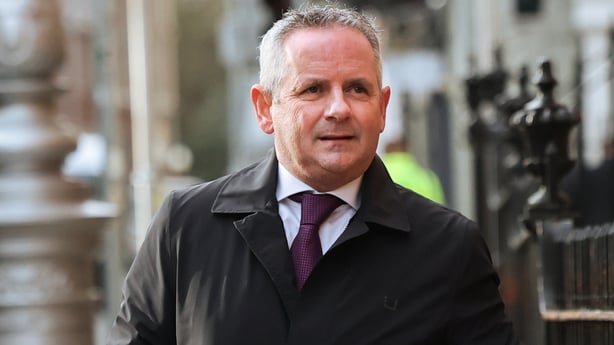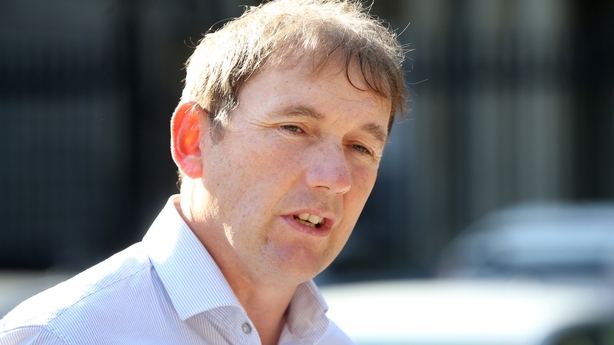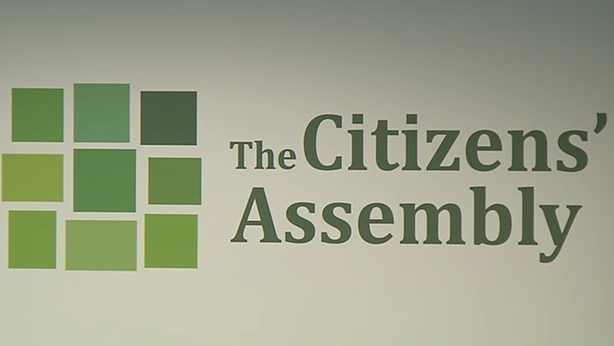This weekend, 99 people from around the country gathered at the Grand Hotel in Malahide for the inaugural meeting of the Citizens Assembly on Drugs Use.
They will be asked to consider legislative, policy and operational changes the State could make to reduce the harmful impact of illicit drugs on society.
The former Chief Executive of the HSE Paul Reid has been appointed as chairperson of this Assembly which rounds the membership to 100.
The members of the public that will give up their time over the coming months to examine the issue were selected at random to broadly reflect the demographic profile of the population.
They have a job of work ahead.

Ireland has a growing drug problem which is impacting individuals, families, communities and wider society.
Governments have sought to get a handle on the issue as far back as 1996 when the first report of the ministerial task force on measures to reduce the demand for drugs was drawn up by a committee of ministers of state under the chairmanship of Pat Rabbitte.
Local drug task forces monitored by a National Drug Strategy Team were created to provide a coordinated response to drug problems.
Twenty years after the publication of the Rabbitte Report as it became known, the CityWide Drugs Crisis Campaign pointed out that by 2021, the number of deaths from drugs had increased by 225% nationwide.
The same year the Health Research Board (HRB) - which has done invaluable work collecting data on drug and alcohol use - published findings of household surveys it conducted in 2019 and 2020.
The research showed that while illegal drug use had plateaued since 2014-2015, there were notable changes in the types of drugs being used nationwide.
The use of cocaine, ecstasy, amphetamines, LSD and poppers had significantly risen and there was a small reduction in cannabis use.
Cocaine use had doubled since 2002-2003 with more men aged 25-34 using it than ever before.

More than one-third of respondents reported a 'very big' or ‘fairly big’ problem with people using or dealing drugs in their local area.
This ranged from 44% expressing concern in the most deprived areas compared to 20% in the least deprived areas.
This was reflected in a report commissioned by the Tallaght Drugs and Alcohol Task Force in 2021 when addiction service workers said the problem of crack cocaine was pulling families and the community apart.
The report said one-third of those seeking help for addiction in the Tallaght-Whitechurch area were women.
The issue is not just a problem in Dublin. Drug use is now geographically and socially spread.
The homeless and addiction service Merchants Quay, which now provides services around the country, saw a rise in the number of people seeking drug and alcohol treatment support in the midlands in 2020.
Its annual report for that year showed that 1,298 people were supported in the region, up from 787 in 2019.
The problem according to respondents to the HRB survey was that drugs were too easily available.
The Citizens’ Assembly will use field trips to visit some of the areas impacted, including those outside of the capital.
It will also examine the issue of legalisation and decriminalisation.
Legalisation is described as the process whereby the importation, sale, purchase and use of drugs is regulated by the State in the same way as alcohol and tobacco.
With decriminalisation, drugs would remain illegal, but a person found in possession of drugs for personal use would not receive a criminal sanction.
Some countries have introduced decriminalisation models including Portugal where addiction and drug use are treated as public health issues, rather than criminal justice issues.

In November, the People Before Profit TD Gino Kenny published the Misuse of Drugs (Cannabis Regulation) Bill 2022 which aims to amend the Misuse of Drugs Act 1977.
It would enable anyone at least 18 years of age, to have possession of 7 grams of cannabis or 2.5 grams of cannabis resin for personal use.
However, a group of doctors from a wide range of specialities known as the Cannabis Risk Alliance (CRA) have expressed concern about the increasing use of cannabis.
Representatives told the Oireachtas Justice Committee last year, that since Portugal had decriminalised over 20 years ago, adolescent cannabis use had doubled; and the country was experiencing the highest prevalence of daily cannabis use among adults in Europe.
According to the Chairperson of the Assembly Paul Reid, the international experience will be brought to the Assembly by looking at the experiences of countries like Portugal, the US, Canada, Colombia, Malta and Germany.
He pointed out that while there is often a focus on legalisation, people working in services in Ireland would argue that the focus should be on how organisations are resourced and funded.
They also want the issue of dual diagnosis to be considered.
This is the term used when a person suffers from both a substance abuse problem and another mental health issue such as depression or an anxiety disorder.
In March, the Oireachtas Joint Sub Committee on Mental Health met to discuss the topic.
Representatives of a community access programme for people with drugs and alcohol issues in the Finglas and Cabra areas called Sankalpa explained what they were seeing on the ground.

In 2022, Sankalpa worked with 162 new people seeking support to reduce their substance usage, stabilise their prescribed medications and move on with their lives.
Seventy-nine of those were recorded as having dual diagnosis, which manager Mick Williams described as a history of mental health difficulties, inadequate social attachments, experiences of trauma and poor coping skills.
The section 39 organisation said it framed the problem of drugs "as an individual issue" rather than in the context of poverty, inequality and social exclusion.
Best practice in promoting and supporting rehabilitation and recovery from drug addiction is part of the terms of reference for the Assembly.
Mr Reid has also sought to prioritise input from young people and adults with lived experience of drugs use in the sessions as well as families and communities.
While Ireland currently has a National Drugs Strategy 2017-2015, services and organisations working in the area say it does not facilitate debate or civic discussion on the use of drugs.
The Citizens’ Assembly on Drugs Use according to Mr Reid is likely to be "the most comprehensive, open, informed and deliberate discussion on drug use", to date.
The last meeting of the Assembly will take place in October when it votes on recommendations, before the Chairperson provides his final report to Government in December.







